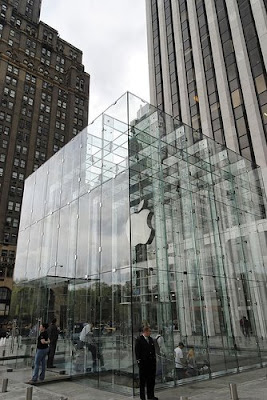Sovereign wealth funds owned by foreign governments apparently see potential in the beaten US real estate and financial sectors. Sovereign wealth funds are buying in bulk investing billions of dollars in banks and buildings.
Only recently the Abu-Dhabi Investment Company (ADIC) acquired the Chrysler building, one of the most famous of Manhattan skyline’s monuments. Located in the heart of Manhattan the Chrysler building is well known for its brimming terrace crown and its classic Art-Deco design.

The Abu-Dhabi Investment Company paid, according to some reports, approximately 800 million dollars for the building to Prudential Real Estate Investors, a subsidiary of the Insurance giant Prudential.
Is the US on sale, with very attractive prices?
According to the NY Times, last year foreign investors poured a record $414 billion into securing stakes in American companies and properties.
 There are three main reasons for the increased attractiveness of US companies and properties:
There are three main reasons for the increased attractiveness of US companies and properties:- The Dollar is relatively weak, especially compared to the EURO.
- Many countries hold huge Dollar reserves, from China to the Gulf States.
- Both the stock and real estate markets have suffered severe losses creating many investment opportunities.
Foreign investments in real estate and investment banks stood out in the headlines but there have been other significant foreign investments.
In the steel industry according to the NY Times The German Company ThyssenKrupp Stainless broke ground in November on what is to be a $3.7 billion stainless steel plant in Calvert, Ala. Furthermore, foreign giants like Toyota Motor and Sony have increased investments in their American subsidiaries with $43.3 billion invested last year from $39.2 billion the previous year.
The weak dollar significantly increases the effectiveness of manufacturing in the US. This, in turn, will draw more and more foreign investments and plants creating more jobs and giving the US a significant push out of the current jam.
According to the Boston Globe, Sovereign wealth funds, which are found mostly in the Middle East and Asia but also in European countries such as Russia and Norway, control an estimated $2.5 trillion in assets. Some experts predict their holdings could reach $12 trillion by 2015. Similar numbers are reported by Morgan Stanley for the Economist.
Notable deals
Citigroup announced earlier this year that it had sold a 7.8% stake in the company worth $14.5 billion to a group of investors, including the government of Singapore and Saudi Prince Alwaleed bin Talal, as it revealed a colossal $10 billion loss for the fourth quarter of 2007.
Merrill Lynch, which also suffered massive losses, sold a special class of stock worth $6.6 billion to funds managed by South Korea and Kuwait.
In NYC The General Motors building was purchased for $2.8 Billion by the government of Dubai and The Flatiron building was sold to an Italian real estate investor.


There have been fears of increased foreign involvement in US leading investment banks and companies but it seems these fears are unjustified.
As visibile on the chart to the right sovereign wealth funds have relatively few assets under management compared to pension funds and mutual funds.
Sovereign wealth funds have traditionally concentrated on buying less than 10% of stocks usually with no board seats or any real influence on the company.
Naturally, a 10% share gives you all the influence you need but it seems fears of a hostile takeover on the US economy are, to say the least, over exaggerated.
Similar fears have been expressed in the 1980's with increased Japanese involvement in US corporations and capital markets. I think it only did the economy good.
No comments:
Post a Comment